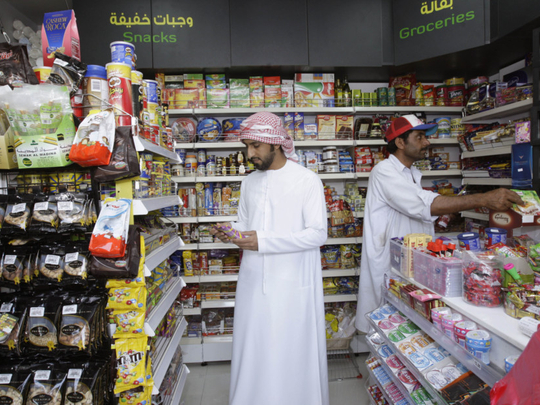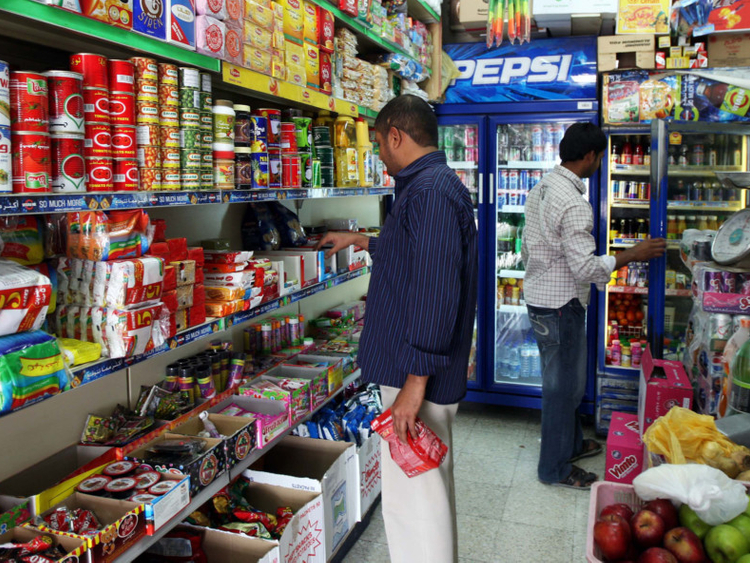
Sharjah: Groceries in Sharjah have to conform to new standards, including installing uniform signboards and security cameras, and adopting stricter food storage standards, authorities said on Monday.
The Sharjah Economic Development Department (SEDD) has given groceries a year to implement the changes, starting with those in commercial areas.
Sultan Al Suwaidi, chairman of SEDD, said the new requirements would contribute to the quality of service and help increase consumer demand.
The SEDD recently started distributing brochures to groceries to explain the new requirements.
The move is similar to the Baqala (Grocery) project in Abu Dhabi, implemented in 2013, that introduced universal decor in groceries as well as better refrigeration and shelving methods. Hundreds of groceries that were too small, or failed to comply with other Baqala standards, had to close.
Sharjah’s new rules stipulate that groceries must not be less than 30 square metres in area, a grocery manager said. Cluttered shelves will not be allowed, with separate metal shelves for baked items. Fruits and vegetables must be displayed in refrigerators, while five-gallon water bottles must be secured in metal enclosures. There must also be a provision for insect traps.
All groceries must have a glass front under the new standards, which also make it compulsory for grocery staff to wear uniforms that include name tags.
The project also aims to, Al Suwaidi said, create investment opportunities for the citizens of Sharjah and the UAE. He emphasised that the main goal of the new standards is to develop the retail sale sector in terms of operating mechanisms, from traditional ways to a modern framework. The chairman added that the project contributes to the development of the emirate’s economy by making the sector more attractive for investors.
He pointed out that some of the standards are related to Sharjah Municipality, while the security requirements are handled by Sharjah Police.
Al Suwaidi said teams from SEDD and other concerned bodies will conduct site visits to the groceries to ensure their compliance.
A Sharjah Municipality spokesperson told Gulf News that the municipality’s role will be “executive” to ensure that groceries implement the new standards. The municipality will not renew the licenses of groceries that fail to conform to the new requirements.
Counting costs
Groceries meanwhile are estimating the cost of implementing the changes. Each grocery will have its own particular situation to address. For example, many groceries already have security cameras, refrigerated fresh produce and glass fronts.
A medium-sized grocery in Al Taawun area estimated the changes would cost Dh100,000. “It will take us many months to recover that cost. We make around Dh4,000-Dh5,000 a day – about 20-30 per cent of that is profit. Even if it was all profit, that would still take us around a month to cover the cost,” the cashier said on condition of anonymity.
Another grocery manager said the new standards were “nice to have” but he does not expect them to increase sales. “It’s a very competitive market and now we will have additional costs. The customers are not concerned about the standard look of groceries; they just want their daily use items,” he added.
The new rules
Groceries must display fresh produce in refrigerated units.
CCTV cameras are mandatory.
Baked products should displayed in separate metal shelves.
Signboards must be of uniform style.
Staff must wear uniforms with name tags.
Walls should be smooth and painted white.
The shop front must be made of glass.
The floor should be covered with ceramic tiles.













